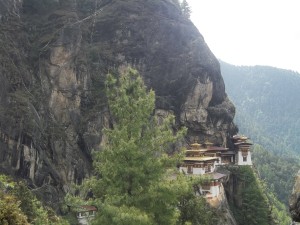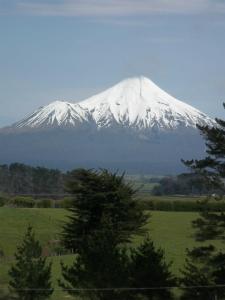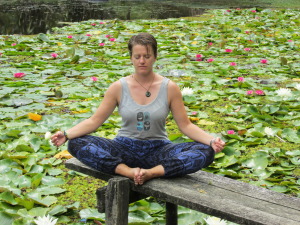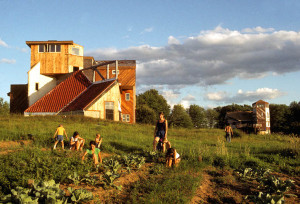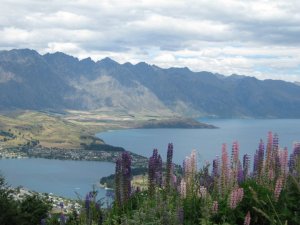Bhutan has always held an air of mystery for me, I didn’t know anyone who’d ever been and most people I spoke to hadn’t even heard of it, but as soon as I discovered there was a place that put Gross National Happiness before Gross Domestic Product I had to visit.
I knew it was a special place before I’d even arrived. We flew through the Paro valley and approached the airport through the cloud covered Himalayas, gliding past mountains that seem to insulate Bhutan from the outside world, it felt like I was descending into another realm.
Known as the land of the peaceful thunder dragon, Bhutan is a deeply Buddhist country, with a population of 700,000. It is a small Kingdom steeped in tradition, many of the people still wear the traditional Bhutanese dress and the traditional culture is something they are keen to preserve and delighted to share.
As a result of their Buddhist beliefs no animals are killed, this means meat is imported from India and street dogs are plentiful, however unlike most dishevelled strays on the streets of Asia these dogs look more like pets as they are so well looked after, it can get a bit noisy at night though!
Bhutan is the only country to measure its progress and growth in terms of happiness before GDP and is covered with 60% forest. It is a remote Kingdom between India and China yet nothing like either of its neighbours.
It is an unspoilt place of natural beauty, the air is fresh and the rivers clean. Set in the beautiful Himalayas, the altitude varies as we travel though the country, some mornings we are high up and it’s barely above 0 degrees but lower down in the cities it reached 27 degrees. The altitude also meant that some of the treks were done at a very slow pace but this seemingly reflected the pace throughout the country at all elevations!
Bhutan has a serenity and calmness to it, the pace of life is slower and the people are satisfied with the little they have, it seems to work very well and they have something so elusive to many richer countries; happiness. Education and health care are free here and even visitors who fall sick are treated for free. Because there is not the same consumer motivation around money there is no hassle to buy things, no danger of being conned and no staff trying to entice you into shops and restaurants.
As our tour began in Paro I immediately noticed the unique architecture, all the houses, shops and government buildings are built in the traditional Bhutanese way, white walls with wooden carvings and intimate detail usually reserved for buildings of note dawn every dwelling in Bhutan. It is like stepping back in time yet Bhutan has managed to retain its traditions and culture whilst still keeping up with the modern world.
Once in the countryside the charm of Bhutan becomes apparent, the air smells of pine forests and at every turn there is a mountain view, a deep gorge or an untouched natural forest. We took time to trek up to one of the most famous icons of Bhutan, the beautiful Taktsang Monastery or Tigers Nest as it is known which perches perilously close to the edge of a cliff at an elevation of 3,500m but the steep climb is well worth it.
The place feels sacred as soon as we enter as do many of the religious sites we visit. The temples were many and part of everyday local life rather than tourist attractions. The fact that photography wasn’t allowed inside meant we spent more time enjoying the moment and our focus was on what we’re experiencing.
Statues made of gold watched us as we moved through the rooms that were filled with an air of peace and tranquility, monks gave out holy water and accepted offerings as the flames from the butter lamps flickered and the smell of incense hung in the air.
Some of the temples we saw dated back to the seventh century, the walls were covered in the most detailed paintings depicting Buddhist stories. Locals made offerings and walked countless times around the Stupas whilst clutching their mala beads. There are prayer wheels and flags at every turn in the colours of the elements earth, wind, fire, water and forest. They look magical flaying over the mountains and the people here have coveted one of their main economies, hydro power, to ensure the prayer wheels turn continually.
The tour took a more energetic turn as we embarked on an overnight trek up to one of the oldest monastery’s Jele Dzong over the Jele pass and camped in the mountains overnight. The guides looked after us at every step, hot meals appeared out of nowhere high up in the hills, our tents were erected and dismantled for us and the bags seemed to follow us everywhere yet we never had to move them.
As we began steep climbs rather than the usual safety briefing, the advice was to go slow and enjoy the moment. I spent time watching the clouds move across the hills like smoke rising from below as the sound of monks chanting drifted across the dawn and rays of sunlight filtered down onto the villages below. We spent a couple of nights in the country’s capital city Thimphu.
The gorges here are not wide enough to fly into and it dawned on me as we sat having lunch that this must be the only capital city without an airport or a traffic light. They had tried to introduce a stop light at the busiest intersection (where dogs still sleep in the road) but it confused people so now there is a young, well dressed man in elegant white gloves who directs the traffic as if he is conducting an orchestra in a way that only the Bhutanese could.
On the way out of town we drove past the prison which apparently has 15 inmates, there is no capital punishment here, a life sentence is the penalty for murder but apparently there haven’t been any murders to test that! As we left Thimphu we drove back up into the mountains and we were welcomed into a local farmhouse in the village of Gangtey for an overnight stay with a Bhutanese farmer and his family. Seeing how the locals lived and sampling the food they cooked for us was a real glimpse into Bhutanese life.
70% of the local population live rurally on farms so there was no shortage of food, the local food is both simple and delicious and defined by the frequent accompaniment (with every meal) of their favourite red rice and chilli cheese.
Full of surprises our next destination didn’t disappoint. We stayed in Lobeysa the home of the divine madman and seemingly the country’s centre of fertility. Paintings of large phallus dawn every building and the temple Chime Lhakhang is frequently visited by couples who are struggling to conceive, here they receive a blessing for fertility, a name for their child and promise to return once they have given birth to say thank you, apparently it’s 100% successful!
One of the things that surprised me most was the standard of English for a country not heavily visited and only open to tourists since 1974. They have been learning English at school since the 50s long before tourism and it shows. I noticed at the front of the schools there were mottos such as ‘excellence in body, speech and mind’ and ‘meaningful living’; how I wished more kids across the world were being taught this sort of stuff.
Once we had done the most of our trekking we were treated to some scenic drives which my aching legs appreciated. We drove through the deep gorges of the magical Haa Valley and up to the highest road in Bhutan, the Chelela Pass where we caught glimpses of the snow capped Himalayan scenery through the mist. It was here at 4,000m elevation that we hung our prayer flags and began a trek down to the Kila Goempa nunnery.
We spent a lot of time driving such are the distances between towns and the mountainous terrain. Due to the monsoon seasons and an undeveloped road network, work is constant and ongoing. Our journeys by road were long, bumpy in places and sometimes terrifying as we clung to the sides of sheer cliff faces but also breathtakingly beautiful as the winding roads ascended through forests, mountains and villages, past cows, monkeys, dogs and villagers selling tea and dumplings at road blocks and school children cheerfully waving as we passed by.
We also took the opportunity to stop and watch a game of archery, the national sport of Bhutan before heading back to watch a local cultural dancing performance in the city. It is becoming easier to get to Bhutan but they are still determined to protect the country, ensuring sustainability and in keeping with their mantra of making decisions that are good for the people and good for the environment. All visits must be booked through a tour group and whilst there is no limit to tourist visas they are all subject to a daily visa fee (approx. $250US), whilst it may seem expensive the fee includes a guide, accommodation, food and transport and your tour can be as individual as you want to make it.
Despite the packed schedule, the days of trekking, cold nights camping and arduous road journeys I feel happy and at peace. Bhutan, its untouched landscape and its endearing people have made my soul sing and is unlike any place I’ve been before. As I prepare to leave, I feel exhausted yet still wanting more, I’d love to spend longer here but also consider myself lucky to have been to somewhere so unique. It warms my heart to know that there is a place in the world like this and that these people are living according to what matters.



